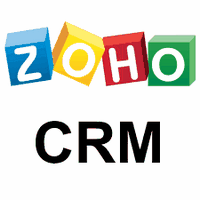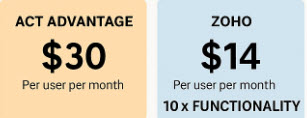 I’ve been using ACT for over 20 years and, like most of you, my database needed a bit of Spring Cleaning. Although I routinely rely on Swift Page to help me update contact information, I wanted to get a better understanding of the needs of my contacts. I sent out a simple email to roughly 1600 ACT users that I had added to my database during the years 1999 through 2004 asking them to let me know what software they were currently using for contact management, their reason for using it and how they liked it.
I’ve been using ACT for over 20 years and, like most of you, my database needed a bit of Spring Cleaning. Although I routinely rely on Swift Page to help me update contact information, I wanted to get a better understanding of the needs of my contacts. I sent out a simple email to roughly 1600 ACT users that I had added to my database during the years 1999 through 2004 asking them to let me know what software they were currently using for contact management, their reason for using it and how they liked it.
I received over 500 hundred responses to my request – and the responses continue to trickle in two weeks later. If nothing else, users of contact management software love to share their experiences!
I had expected that many of the ACT users from 10 years ago had moved on to other CRM solutions that they perceived to have a better set of bells and whistles than what they found in ACT. Boy, was I wrong! Most of my contacts have remained loyal to ACT.
If I was surprised by the response rate, I was stunned to learn that Outlook was the competitive product that had lured away the most users from ACT. Yikes! Talk about taking one step forward and two steps back!
Outlook is great for emailing to a single contact and for keeping very basic calendars and personal address books. However, if you’re running a business and need to keep track of your prospect and customers you’ll need to supplement it with another solution.
There are numerous limitations to using Outlook in a business environment including:
- No Account Management: There is no way to “roll up” several contacts into one centralized Account or “Company” record.
- No Sales Process Management: Because Outlook is targeted at a general audience, it does not provide tools for managing sales, projects and customer relations.
- No Reporting: Outlook only allows simple printing of list. It does not include the ability to create custom reports or specific sales reports. ACT! provides many contact reports, all of which are customizable to meet the specific needs of a particular individual.
- · Minimal Customization of Contact Data: Outlook offers very minimal customization. ACT! allows user to store the exact information that they need to by easily modifying or deleting existing fields and add unlimited customer fields for each record.
- · Lack of Mail merge features: Because Outlook’s users tend to be the general population and use Outlook as an e-mail client, they typically have no need to use templates. On the other hand, ACT! users are sales professionals and small business owners who want to automate as many business processes as possible.
- Inability to create an e-mail merge: You must use a BCC in order to send a mass email in Outlook, and you can’t personalize the body of the e-mail. This means that your e-mail is very likely going to be trapped by your user’s spam filter.
I can only assume that those ACT users who migrated to Outlook are either no longer running businesses or have no need to grow one. For me, not using ACT to manage a business is tantamount to using an abacus to total a long column of numbers.
For more information on CRM software visit my website www.techbenders.com or send an e-mail to blog@techbenders.com.





I am looking for a service to help migrate my Act 2013 data to my Outlook 365 account. I have been using Act for many years and I primarily use the contact and calendar features. I don’t use the customer management or email portions of the software. Since Act! No longer supports the 2013 version, I want to move the data to Outlook. Is this a service you can provide?
Hi Richard,
We can help you get your Act data into Outlook but there are several caveats you need to understand. First and foremost, Outlook is not a relational database which means that you won’t be able to attach multiple notes, histories & activities to a single contact. I can bring in all of your old activities so that they will appear on the Outlook calendar and I can even place the corresponding contact’s name in the activity detail. In addition, Outlook has a set field structure which means you won’t be able to add any of your customized Act fields into Outlook.